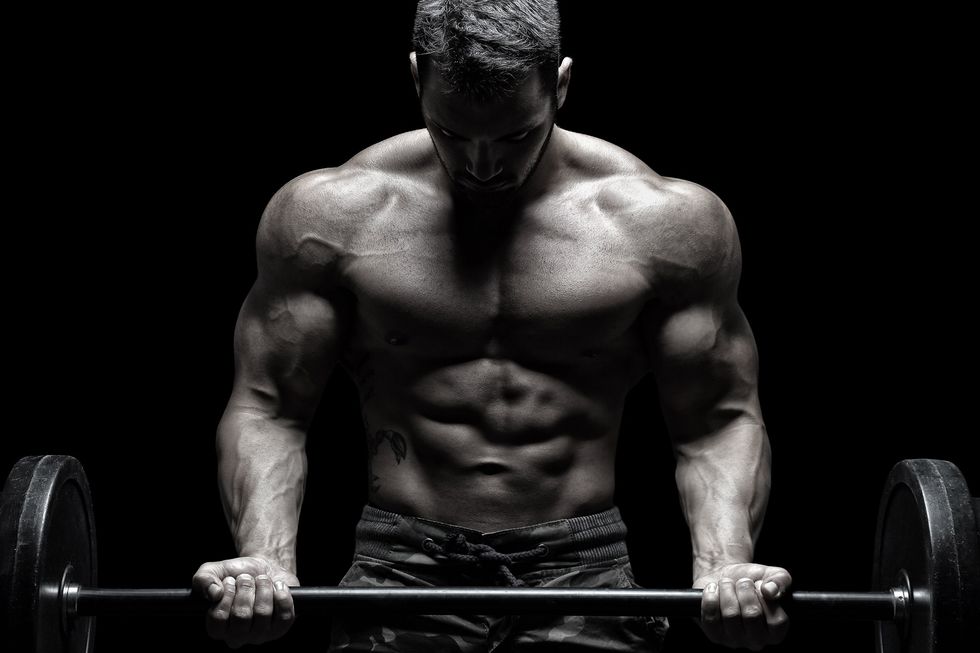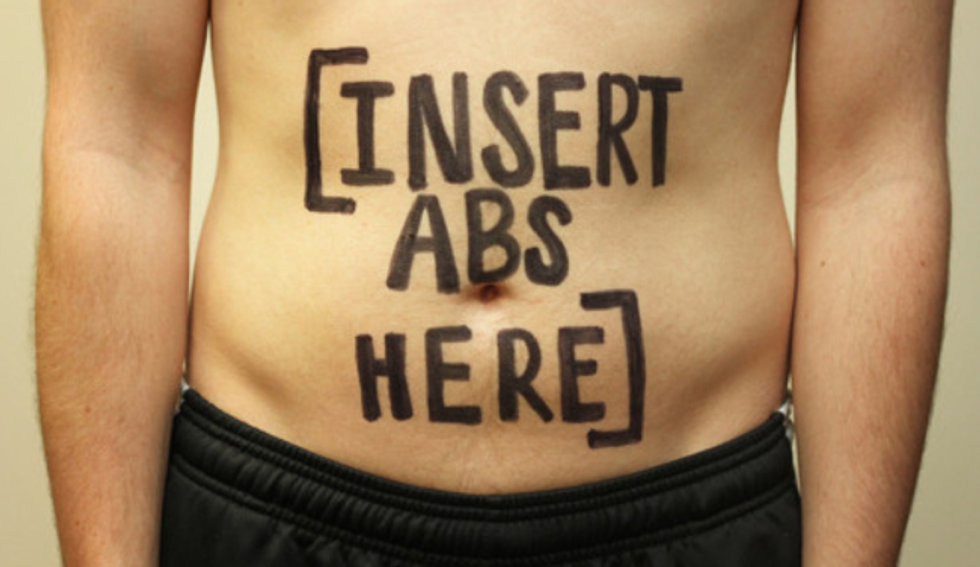So it comes as no surprise to friends and family when I publicly acknowledge, here and now, before the O Holy Internet that I am indeed a fitness nut. Yes it's true, I'm one of those, and I mean the evidence speaks pretty clearly for itself: a certified personal trainer and martial artist who loves any excuse to spend the weekend kayaking, mountain climbing, or hiking. A guy who prefers doing home-cooked meals over Chik-fil-A, who cherishes the smoothie blender like it was the last unicorn on earth, but who will never eat kale, so there's a saving grace in that. And I love every minute of it - to be honest, there's a certain point where working out becomes so ingrained in your routine that it provides an outlet to just de-stress, and release all pent-up anxiety that you accumulated during the day. But if we're being totally honest, my love for these activities resulted from a moment of self loathing in my childhood, specifically when a kid named Trevor made fun of me for being fat in the 2nd Grade.
You see I was never athletically fit as a young kid - I wasn't morbidly obese but I was definitely on the portly side. I would always drop the ball whenever we played flag football at recess and my ability to handle a basketball was just as sub-par, though I did have mad "granny style" shooting skills. But my lack of any natural gift at sports became easy fodder for teasing, taunting, and bullying. And Trevor took full advantage. One of his bouts of ridicule led to a scuffle in which Trevor landed a sucker-punch to my then padded stomach. "Just like hitting a pillow! Take that, Lard-Boy - now run off and go cry like a baby!". I decided then and there two things: one - I was finally going to enroll in a martial arts school so that no one would ever be able to land another punch on me again, and that I was going to lose the weight. Permanently.
It comes as no surprise that there has been a growing reinforcement over the years in pop-culture and media that muscularity = masculinity. With all the superhero movies churned out by DC and Marvel Studios we see a barrage of men coming to the rescue with their Adonis-standard level physiques. I still remember going to see Spider-Man in theaters - the first one way back in early 2000's - and what was the first change Peter Parker noticed? Not the spider webbing, not the ability to walk on walls, not fast reflexes - nope, it was instant 16-pack abs.
A study last year by Body Image found that American men are just as unhappy and dissatisfied with their physiques as women. The study also found that adolescent boys are more inclined to develop habits of severe self-criticism of their body shape - specifically, it found that anxiety actually increased in young boys after playing video games where the protagonists were chiseled and ripped.
This consequently has led to a high increase in cases of muscle dysmorphia in young men. In an attempt to look like the Rock or Vin Diesel, many turn to weight training without consulting proper professionals on safe techniques. As a result, many start lifting weights at young ages before their muscles are fully developed, causing severe pain. Others train way too frequently during a given week, leading to muscular atrophy that can be severely detrimental to health. There's also the frequent use - and subsequent abuse - of anabolic steroids by young men. The aforementioned study has found that up to 4 million Americans have tried steroids at some point in their life - and nearly all of that total was male. Another poll through Huffington Post discovered startling statistics: 63% of men asked said that they felt they could always lose weight, 54% of men said they hated having their picture taken, and 15% would be willing to trade 2-5 years of their life to have the "ideal men's body."
There are also those who seek out any means to quell or numb those gnawing anxieties - and in many cases, that's food. In an interview, actor Chris Pratt opened up about his time as the chubby Andy on Parks and Rec, before becoming the leading rugged man seen in Jurassic World and Guardians of the Galaxy. Pratt explained how gaining weight for the role started off as a funny running gag, but after achieving 300 lbs and eating Big Macs in between takes for episodes, feelings of helplessness and self-loathing set in. "I had real health issues that were affecting me in a major way," said Pratt. "It's bad for your heart, your skin, your system, your spirit...when I was fat and unhappy the only moments of respite were when I was shoveling food down my neck and totally negative in between."
Men are bombarded with adds regarding weight loss, muscle building exercises, and fitness via social media, TV, and film. In the instance where you do see someone overweight on screen it is often to take on the role of a bad guy, comedic relief, or a buffoon. There is only one instance where I've seen a male overweight actor portraying a role with substance and depth, and that is Chris Sullivan as Toby in the hit show "This Is Us". And this constant stream of messaging is bound to take its toll mentally on men. Furthermore, studies have shown that while straight men struggle under this pressure, gay men are at even greater risk of suffering from depression, anxiety, and other mental issues in regards to body dissatisfaction.
Yet, while men feel the impacts of body image insecurity just as much as women, women are ahead of the game because they are more willing to take initiative - to talk, debate, engage with, and resolve this issue. But both boys and men are still stuck in a "culture of silence" in which we don't open up about our worries or insecurities. For us, if someone makes fun of how you look the expectation is that you laugh and shrug it off and masquerade behind humorous depictions like "dad-bod." You're supposed to not take it so hard, to bury it and not acknowledge it, or, if you're gifted with wit - throw another barb back at the teaser so you show that you're impervious, while secretly hoping that you've hit one of their nerves. 'Cause like so many relationship magazines and bloggers like to spout - "guys are the worst cause they don't have feelings." Right.
Instead of accepting the status quo, there needs to be a greater push to engage in open dialogue and discussion with men over these issues. Schools should teach both boys and girls about Photoshop techniques, and how they can spot this in advertisements in order to recognize that these depictions of body image are not the norm. Teach that there is more than one gold standard body type, and that you should recognize the unique qualities in each type. And above all, if people tease you about your body type - don't let it slide. Be assertive and confront them on their remarks. Cause being a man doesn't mean having great physical strength - its the inner strength that matters the most.























